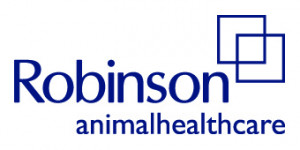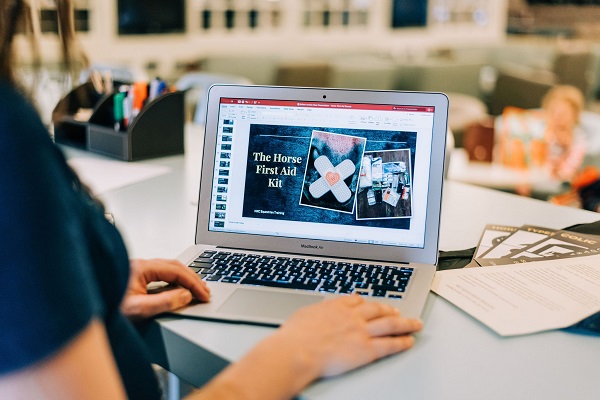Posted: 28th May 2020 | Back to news feed

Knowledge is power when it comes to first aid and whether you are new to horse ownership or you are looking to refresh your skills, attending an equine specific first aid course is a good idea for anyone caring for a horse.
With lots of well-meaning advice available online and on social media, it can be difficult to know what is the correct thing to do when faced with an emergency and what information is out of date, so it is far better to get the information direct from the horse’s mouth – and by this we mean a qualified vet!
NKC Equestrian Training offer a number of first aid courses from full day workshops to online courses in bite sized sessions that can easily fit around the busy schedule of most horse owners.

Founder of NKC Equestrian Training, Nicola Kinnard-Comedie BHSAI MSc, very kindly offered Robinson Animal Healthcare the opportunity to take part in one of their Online Courses to provide a review.
Online Horse First Aid Course
The course was split into three, two hour sessions with each session focusing on three or four different topics.
Nicola warmly hosts the sessions, welcoming everyone and giving a brief explanation about how it all works, before introducing vet, Kate Granshaw, who conducts the course.
Kate has a wealth of experience as a partner at Lingfield Equine Vets and is an FEI Permitted Treating Vet, as well as a horse owner herself, so she understands the emotion involved when faced with an owner of an injured or sick horse.
Session One – A Healthy Horse
The first session focused on how to recognise a healthy or unhealthy horse, first aid and what you should keep in your first aid kit, vaccinations and why they are so important and different types of wound.
In the healthy horse section, Kate went through all the vital signs, explaining what is and isn’t normal, stressing the importance of knowing what is normal for your horse, as this can vary greatly from horse to horse. This information can prove vital to a vet and speed up the diagnosis and any decision regarding treatment options.
Having a first aid kit that is stocked with products that you are likely to need in the event of an injury is vital, so Kate described what should be included and importantly what types of injury they should be used for and how. During this particular section she recommended Animalintex® from Robinson Animal Healthcare as a must as part of the poultice kit.
Next up was vaccinations, where Kate explained why it is important to ensure your horse is vaccinated and the most common diseases that horses in the UK are vaccinated against. There are many myths surrounding vaccinations, such as ‘my horse doesn’t leave the yard, so surely it doesn’t need vaccinating’, with Kate doing her upmost to dispel as many of them as possible with proven, scientific facts.
Finally the session came to a close looking at different types of wounds and how they should be treated, as well as providing an understanding of how wounds heal.
Session Two – Horse Emergencies
Session two was all about equine emergencies - what might be considered an emergency and what might look much worse than it is, with the main topics being nose bleeds, choke, a horse getting cast and colic.
Horses can be unpredictable animals, especially when in pain, so the session began with Kate pointing out that human safety should always be top priority and never to put yourself in unnecessary danger.
Nose bleeds are a common cause of a horse requiring veterinary attention and can have a number of different causes. Kate expressed her view that nose bleeds should always be investigated and went through the questions your vet might ask to help assess the likely cause.
Choke can be incredibly frightening for any horse owner but this section provided reassurance that it was rarely a cause for concern.
Dealing with a horse that has become cast was another topic where human safety was of the upmost importance with Kate stressing that this wasn’t a situation that should be tackled alone.
Colic is a source of fear for most horse owners and is the most common reason a vet is called out. This is always an emergency and in this section Kate explained the different symptoms, what to do and the various treatment options. This was again an opportunity to dispel the many common myths often believed to be true.
Session Three – Eyes, Lameness, Snotty Noses and Biosecurity
The third and final session of the course looked at eyes and what to look for in a healthy eye and conditions of the eye, lameness, snotty noses and biosecurity.
A little known fact is that eye injuries should be treated as seriously as colic as a delay in treatment could result in a horse losing its eye.
Knowing how to correctly ‘trot up’ your horse is a real bonus when it comes to diagnosing lameness and being able to assess your horse to understand if they are lame in front or behind.
When covering this topic, Kate identified what to look out for when trying to determine front or hind leg lameness and also explained why vets use the flexion test.
When discussing snotty noses, Kate explained the biggest concern is that many of the causes are infectious and can potentially be passed on to other horses on the yard. This led nicely onto the topic of biosecurity and the need for all yards to have an isolation procedure in place.
The isolation procedure recommended by most vets is the ‘Traffic Light System’. Kate detailed how this has been proven to work well in limiting the spread of disease, even on a large yard.
Without a doubt the Online First Aid Course from NKC Training is well worth the time and money for any horse owner. The recent lockdown due to COVID-19 only served to highlight the need for owners to step up their level of care when vets were treating emergencies only.
Delivered by industry experts, it provides information you can trust whilst bursting the bubble on many common old wives tales still believed to be true by many in the horse world.
For more information visit www.nkcequestrian.com
Robinson Animal Healthcare has a wide range of products for all your first aid requirements including the market leading Animalintex®, which is the only VMD licensed multi-layered absorbent poultice available in the UK and the legendary Veterinary Gamgee®.
For more information contact Robinson Animal Healthcare on 01909 735000 or visit www.robinsonhealthcare.com
The Equestrian Index newsfeed is compiled from articles submitted by advertising members and expresses the opinions of those members. Watsons Directories Ltd shall not be held liable for any inaccuracies or mis-statements therein.
